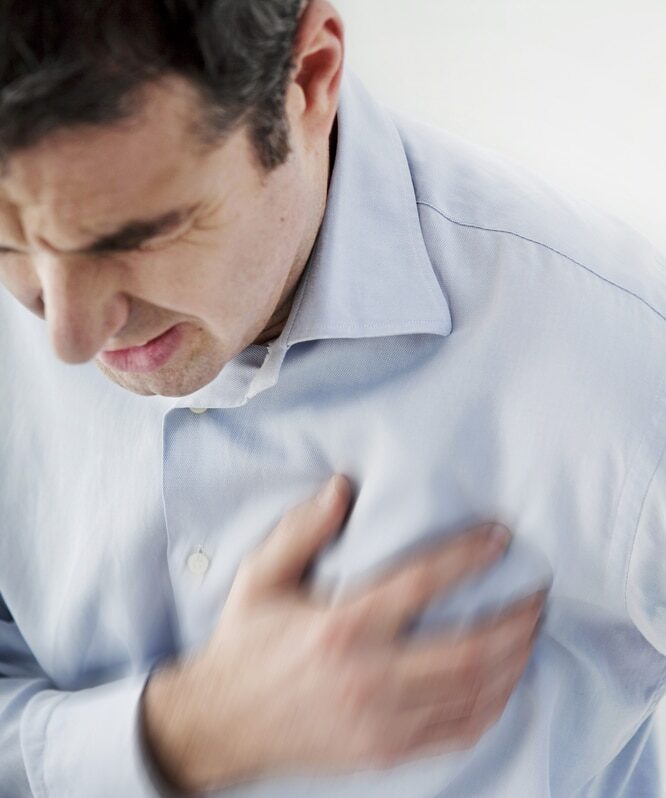Adderall and alcohol can be a dangerous mix. Using these substances together increases your risk of severe health problems, including heart attack and stroke. Learn more about mixing Adderall and alcohol, the effects, the dangers, and signs you need help.
What Is Adderall, and What Are Its Effects?
Adderall is a medication used to treat attention deficit hyperactivity disorder (ADHD). It is a central nervous system stimulant that works by increasing the levels of dopamine and norepinephrine in the brain. Adderall is available in both immediate-release and extended-release forms.
Adderall can be habit-forming. It is a Schedule II controlled substance, which means it has a high potential for abuse and dependence. When abused, Adderall can lead to serious side effects, including heart problems, psychotic episodes, and even death. You should only use Adderall if it’s been prescribed by a doctor. This prescription drug can have both positive and negative effects.

The positive effects for people with a medical need for Adderall, like ADHD, include:
- Increased alertness
- Improved focus
- Improved concentration
The negative effects of Adderall include:
- Dry mouth
- Loss of appetite
- Insomnia
- Anxiety
- Irritability
Adderall can also have some serious side effects. Some of the more common Adderall side effects include:
- Fast heartbeat
- Dizziness
- Headache
- Stomach pain
- Feeling jittery
Some of the less common side effects include:
- Chest pain
- Shortness of breath
- Fainting
- Seizure
- Changes in vision
If you experience any of these side effects, you should call your doctor right away.
Why People Mix Adderall and Alcohol
People with substance abuse problems often mix drugs. Whether it’s alcohol and ecstasy, cocaine and marijuana, or Adderall and alcohol, they combine substances to enhance the effects of each.
But why do people mix Adderall and alcohol specifically? Adderall is a stimulant that increases alertness, focus, and energy levels, while alcohol is a depressant that slows down the nervous system. Some people believe this combination will help them drink more for longer periods of time. But when taken together, these two substances can leave you feeling anxious and jittery. The combination can also lead to serious health problems. Mixing Adderall and alcohol can cause:
- Dehydration
- High blood pressure
- Heart palpitations
- Seizures
Dangers of Mixing Adderall and Alcohol
When people think of the dangers of mixing drugs, they often think of combinations like cocaine and alcohol. But prescription drugs can be just as dangerous when mixed with alcohol. In particular, Adderall and alcohol can be a risky mix. Just because one is a depressant and the other is a stimulant does not mean they cancel the effects of one another. They put a strain on your body by competing against each other.
Some of the dangers of mixing alcohol and Adderall include:
- Mixing stimulants and depressants can lead to an overdose.
- Adderall can mask the effects of alcohol, leading to drinking more than intended.
- Because Adderall can dull the effects of alcohol, the increase in alcohol intake can lead to alcohol poisoning.
- Mixing amphetamines and alcohol can lead to heart problems and seizures.
- Mixing Adderall and alcohol increases the risk of developing an addiction to both substances.
Long-Term Effects of Alcohol and Adderall
When most people think about the long-term effects of alcohol and Adderall, they typically focus on the physical effects. It’s important to remember that these substances can also have a significant impact on your mental health.
Alcohol is a central nervous system depressant. This means it slows down your brain activity. In small doses, drinking alcohol can lead to feelings of relaxation and decreased anxiety, but when you drink too much alcohol, the opposite effect can occur. You may experience increased anxiety, depression, and paranoia.
Adderall is a stimulant. It speeds up your brain activity and can lead to feelings of euphoria. However, like all stimulants, it can also lead to feelings of anxiety and paranoia. Additionally, Adderall abuse can lead to psychotic episodes characterized by delusions and hallucinations.
The effects of Adderall and alcohol abuse:
Physical Effects of Alcohol Abuse
The physical effects of alcohol abuse are well-documented. Heavy drinking can lead to:
- Liver damage
- Heart disease
- Pancreatitis
- Cancer
- Stroke
It can also weaken your immune system, making you more susceptible to illnesses like pneumonia and tuberculosis. Additionally, alcohol abuse can cause problems with your digestive system, including gastritis and ulcers.
Physical Effects of Adderall Abuse
The physical effects of Adderall abuse are like those of other stimulants. They include:
- Increased heart rate
- High blood pressure
- Insomnia
- Loss of appetite
- Weight loss
- Headaches
Mental Effects of Alcohol Abuse
In addition to the physical effects of alcohol abuse, there are also mental effects. Heavy drinking can lead to memory problems and difficulty thinking clearly. It can worsen existing mental health conditions like depression and anxiety. Alcohol abuse can also increase your risk of developing dementia later in life.
The long-term mental effects of alcohol abuse can include:
- Depression
- Anxiety
- Memory problems
- Confusion
- Personality changes
- Cognitive impairment
- Difficulty making decisions
- Paranoia
- Psychosis
- Inflammation of the brain
Mental Effects of Adderall Abuse
Like all stimulants, Adderall abuse can lead to feelings of anxiety and paranoia. Adderall abuse can cause psychotic episodes characterized by delusions and hallucinations.
The long-term mental effects of Adderall abuse include:
- Memory loss
- Confusion
- Anxiety
- Paranoia
- Mood swings
- Depression
- Addiction

Adderall and Alcohol Addiction Signs
If you are worried you or a loved one may be addicted to Adderall or alcohol, there are certain signs you can look for. Adderall addiction signs include becoming obsessed with the drug, needing increasing amounts to get the desired effect, and experiencing withdrawal symptoms when you stop taking it. Alcohol addiction signs include craving alcohol, drinking more than intended, and feeling unable to control how much you drink.
Signs and symptoms of alcohol and Adderall addiction include:
- Using alcohol in combination with Adderall in an attempt to intensify the effects of both drugs
- Excessive use of Adderall and alcohol
- Using Adderall and alcohol to self-medicate problems unrelated to ADHD
- Feeling the need to use more Adderall and alcohol to achieve desired effects
- Experiencing negative consequences as a result of using Adderall and alcohol, such as problems at work or school, financial difficulties, and relationship problems
- Having a strong craving or compulsion to use Adderall or alcohol
- Failing to meet obligations due to drug and alcohol abuse
- Inability to cut back on or quit Adderall or alcohol use
How Do You Treat Alcohol and Adderall Abuse?
If you or someone you know is abusing Adderall or alcohol—or the two together—it’s important to get help as soon as possible. There are a number of treatment options available, but the best course of action depends on the severity of the addiction.
Here are some common treatment options for substance abuse:
Inpatient treatment: Inpatient treatment programs require you to live at a facility like Vogue Recovery Center for the duration of the program. These programs usually last 30 days but can be longer depending on how severe your addiction is.
Outpatient treatment: Outpatient treatment programs allow you to live at home while attending counseling sessions and participating in other activities, such as 12-step programs. These programs typically last for several months.
Medication management: Sometimes people abuse drugs and alcohol to self-medicate mental health disorder symptoms. This is called a dual diagnosis. When psychiatric symptoms are managed appropriately with medication, you’ll have less of an urge to cope with substances.
Therapy: Group therapy and individual therapy can help you identify the underlying causes of addiction and develop coping mechanisms for dealing with triggers. Common types of therapy used to treat Adderall and alcohol abuse include cognitive behavioral therapy (CBT) and dialectical behavior therapy (DBT).
Looking for Help?
Vogue Recovery Center offers a comprehensive treatment program that addresses both addiction and mental health. Our program includes individual and group therapy, as well as medical detox and holistic treatment approaches. We also offer a wide range of amenities and services. Our experienced staff are here to support you every step of the way. If you or someone you love is struggling with addiction, we can help. Contact us today to learn more about our program.
References
vogue-staff
Latest posts by vogue-staff (see all)
- Mixing Adderall and Alcohol: What Can Happen? - December 22, 2022
- 15 Signs of a High-Functioning Alcoholic - November 24, 2022


